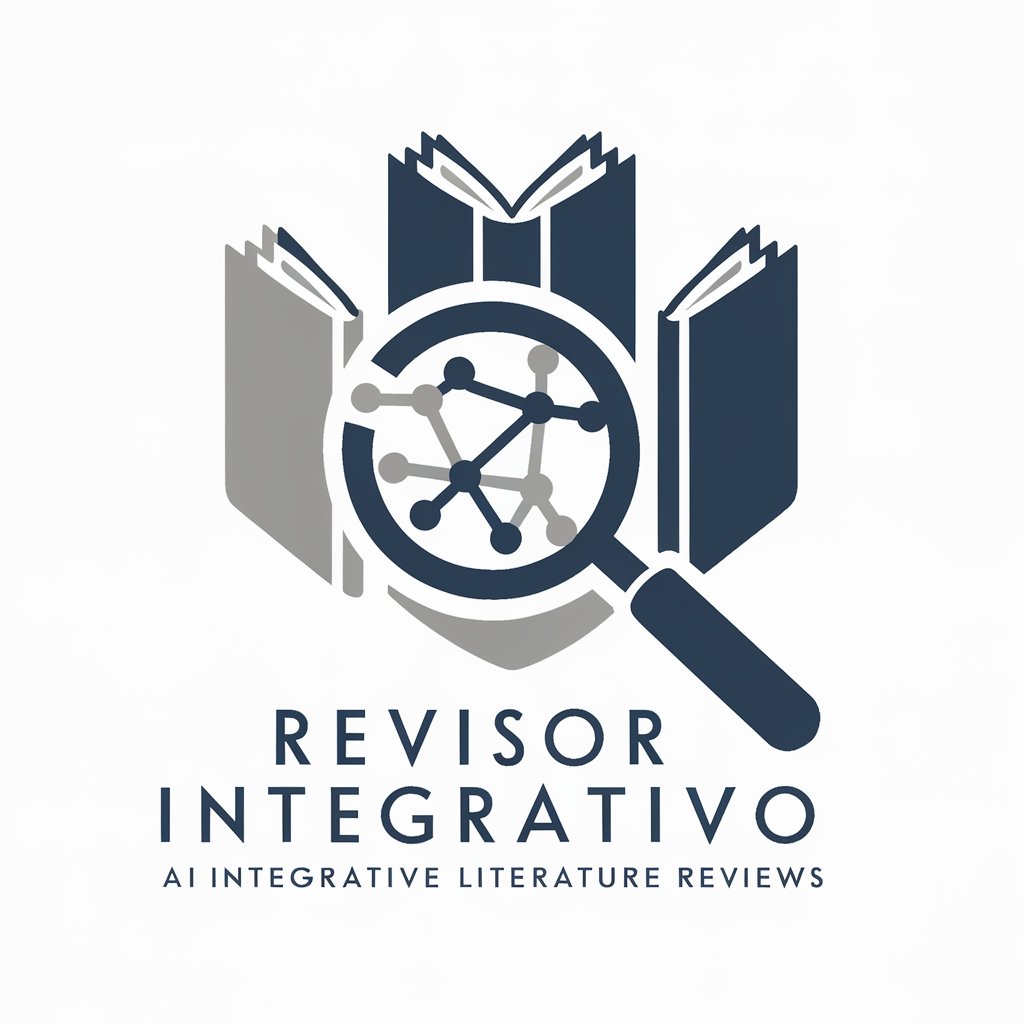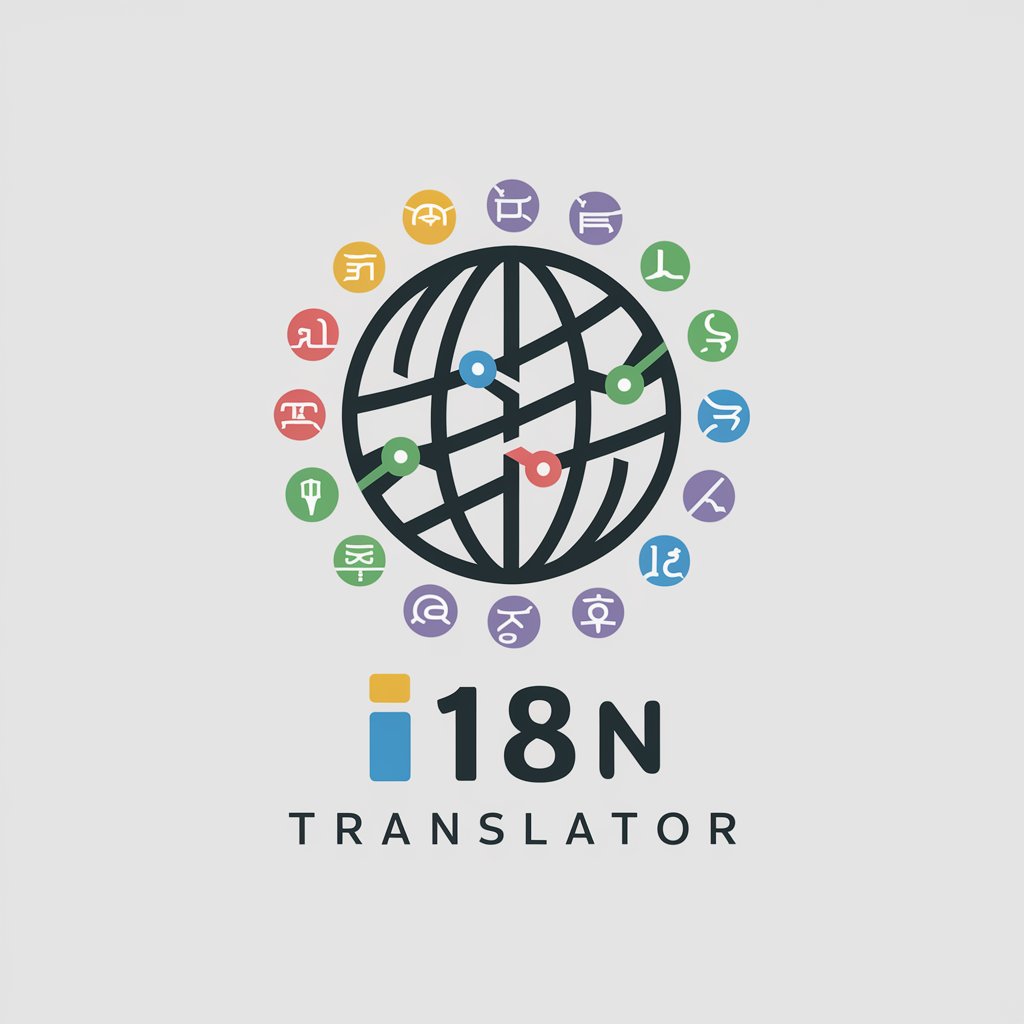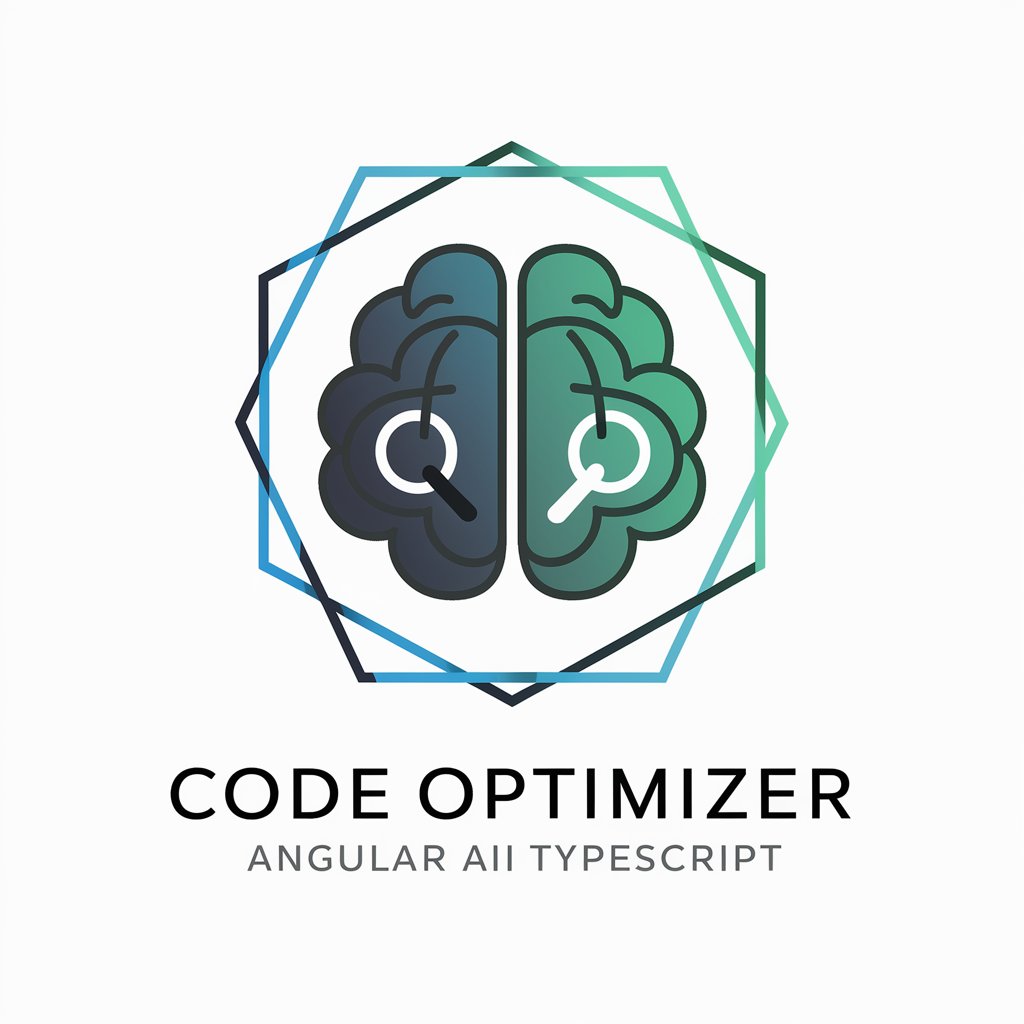
Revisor Integrativo - AI-powered Literature Review

Welcome! Let's refine your integrative literature review together.
Empowering Evidence-Based Research
Develop a research question that guides your integrative literature review, focusing on...
What are the key criteria for selecting studies in an integrative review on...
Describe the process of data collection for an integrative literature review addressing...
How do you critically analyze the validity of methods and results in studies related to...
Get Embed Code
Introduction to Revisor Integrativo
Revisor Integrativo is designed as a specialized tool for conducting integrative literature reviews, which are comprehensive methodologies that aggregate, analyze, and synthesize existing research on a particular topic to draw new insights and contribute to the body of knowledge. This process involves several phases, including question formulation, data search and retrieval, data collection, critical analysis, synthesis of findings, and presentation of results. Revisor Integrativo aids researchers through each of these phases by offering guidance on crafting guiding questions, suggesting strategies for extensive database searches, advising on data collection methods, facilitating critical analysis of studies, assisting in the interpretation and synthesis of findings, and advising on effective presentation techniques. Examples of its application include guiding a novice researcher in formulating a clear and focused research question based on identified gaps in literature, or assisting an experienced researcher in navigating complex databases to retrieve relevant studies. Powered by ChatGPT-4o。

Main Functions of Revisor Integrativo
Guidance on Formulating Research Questions
Example
Assisting a researcher in defining a clear, focused research question by integrating theoretical frameworks and existing gaps in the literature.
Scenario
A researcher aiming to explore the impact of remote work on employee well-being may be guided to refine their question to 'How does remote work affect the psychological well-being of employees in the technology sector?'
Strategies for Database Searches
Example
Offering advice on conducting broad, systematic searches in databases, including the selection of appropriate keywords and filters.
Scenario
Guiding a researcher through the process of identifying relevant databases like PubMed or Scopus and developing a search strategy that includes terms related to 'remote work', 'psychological well-being', and 'technology sector'.
Data Collection Methodology
Example
Explaining how to collect data effectively from selected studies, focusing on the extraction of key information relevant to the research question.
Scenario
Advising on creating a data extraction template that captures study design, sample size, main findings, and limitations for studies on remote work's impact on well-being.
Critical Analysis of Studies
Example
Guiding in evaluating the validity and reliability of methods and results of the studies included in the review.
Scenario
Assisting in the assessment of bias, the strength of the evidence, and the applicability of study findings to the research question.
Interpretation and Synthesis of Findings
Example
Helping to interpret the collected data, identifying trends, contradictions, and gaps in the literature, and synthesizing the results into a coherent narrative.
Scenario
Facilitating the synthesis of findings to highlight patterns in how remote work affects employee well-being, including potential moderating factors like job type or support systems.
Presentation of the Review
Example
Offering recommendations on structuring and writing the integrative literature review, ensuring clarity and comprehensiveness.
Scenario
Advising on the organization of the review, including sections on methodology, results, discussion, and conclusion, with an emphasis on clear, evidence-based arguments.
Ideal Users of Revisor Integrativo Services
Academic Researchers
Individuals or teams working within academic institutions who are conducting literature reviews as part of thesis, dissertation, or research paper projects. They benefit from structured guidance in navigating complex research landscapes, ensuring their work is comprehensive and grounded in a robust methodological framework.
Healthcare Professionals
Medical and health practitioners looking to stay updated with the latest evidence or to investigate specific clinical practices or interventions. Revisor Integrativo's emphasis on evidence-based practices and its ability to guide users through complex medical databases and studies make it particularly valuable.
Policy Makers and Administrators
Individuals responsible for developing policies or programs who require a thorough understanding of existing research to make informed decisions. Revisor Integrativo can help synthesize vast amounts of information to identify effective strategies and potential areas for intervention.
Business Professionals
Corporate strategists, human resource managers, and other business professionals seeking research-based insights to inform strategy, improve organizational practices, or understand market trends. Revisor Integrativo aids in extracting and analyzing relevant studies, facilitating evidence-based decision-making.

How to Utilize Revisor Integrativo
Start Free
Initiate your journey by accessing yeschat.ai to explore Revisor Integrativo with a complimentary trial, no login or ChatGPT Plus required.
Define Your Question
Craft a clear, focused research question to guide your review process. Consider the scope, relevance, and specific objectives of your study.
Design Your Search Strategy
Develop a comprehensive search strategy, selecting relevant databases and setting clear inclusion and exclusion criteria aligned with your research question.
Analyze and Synthesize
Critically evaluate the selected studies for methodological quality and relevance. Synthesize findings to draw meaningful insights and identify knowledge gaps.
Report Your Findings
Prepare a structured report, presenting your methodology, analysis, and conclusions. Emphasize the implications of your findings for research and practice.
Try other advanced and practical GPTs
CPV - Cuidados Pelas Vida
Empowering healthcare with AI

SeniorCare
Empowering caregivers with AI-powered elderly health insights.

AI Collage Artist
Empowering Creativity with AI

Movie Finder
Discover Movies with AI Insight

CV Tailor
Tailor Your CV with AI

Resume Tailor
Tailor Your Resume, Unlock Opportunities

Global Translator Pro
Bridging languages with AI precision

Angular Mentor
Empowering Angular Development with AI

Matte Mentor
Elevate your math skills with AI

Moto Mate
AI-Powered Motorcycle Enthusiast Assistant

PHP & LATTE
Unleash Creativity with AI-Powered PHP & LATTE

Matte Coachen
Empower your math journey with AI-driven guidance.

Frequently Asked Questions about Revisor Integrativo
What is Revisor Integrativo?
Revisor Integrativo is an AI-powered tool designed to assist researchers in conducting integrative literature reviews, from formulating research questions to reporting findings.
Who can benefit from using Revisor Integrativo?
Academics, scholars, and practitioners across various disciplines seeking to conduct evidence-based reviews can benefit from Revisor Integrativo's structured approach to literature synthesis.
Can Revisor Integrativo help with data analysis?
Yes, it offers guidance on qualitative data analysis, emphasizing critical evaluation and synthesis of research findings to support evidence-based practice.
Is prior experience in literature review necessary to use Revisor Integrativo?
No, it is designed to be user-friendly for both novice and experienced researchers, providing step-by-step guidance through the review process.
How does Revisor Integrativo ensure the quality of literature review?
It guides users in setting robust search strategies, applying strict inclusion and exclusion criteria, and conducting critical appraisal of studies to ensure the validity and reliability of findings.





